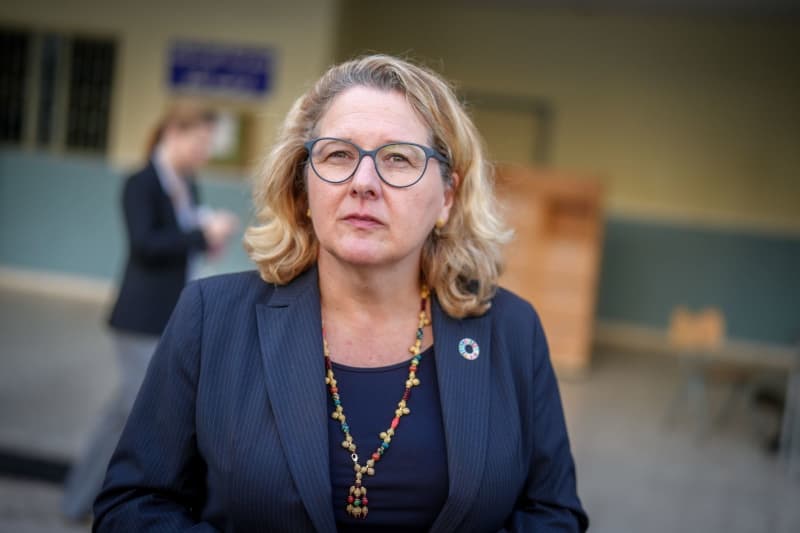Germany has announced plans to bolster its support for Chad in managing the influx of refugees from Sudan, as articulated by Economic Cooperation and Development Minister Svenja Schulze during her recent visit to the African nation. The visit, which spans four days, underscores Germany’s commitment to addressing one of the most pressing humanitarian crises in the region. Over 700,000 refugees have fled to eastern Chad from Sudan amidst a prolonged power struggle, which has resulted in more than 11.6 million people being displaced both internally and externally. Schulze highlighted that the plight of the Sudanese people is often overlooked, despite the fact that the current situation represents the largest refugee crisis globally.
Schulze emphasized the urgency of the crisis in Sudan, where the conflict has notably impacted women and children, who comprise over 90% of the refugees entering Chad. This demographic reality paints a grim picture of the humanitarian needs that are mounting in both Sudan and Chad, a country already fraught with challenges, including poverty, insecurity, drought, flooding, and hunger. Schulze’s remarks aimed to shed light on the dedication and solidarity that Chad is displaying in the face of this crisis. The absence of physical barriers, such as fences, illustrates Chad’s commitment to welcoming refugees even as it grapples with its socio-economic difficulties.
On the first leg of her journey, Schulze met with government officials and civil society representatives in N’Djamena, the capital of Chad, to discuss the situation and the needs of both the refugees and the host communities. This dialogue serves as a crucial step in determining how best Germany and other international partners can assist Chad in providing for the growing number of refugees. The discussions included addressing the immediate needs of the refugees and exploring long-term strategies to enhance Chad’s capacity to handle this influx.
In the coming days, Schulze plans to become the first European Union minister to travel to the eastern part of Chad, specifically to the border town of Adré. This area is a critical point of entry for refugees from Sudan, with hundreds arriving daily. The minister’s on-the-ground visit will include inspections of refugee camps, a nutrition center, and a health clinic, aiming to assess the conditions these refugees face and identify areas where international aid can make a significant impact.
Additionally, the eastern region of Chad is vital for humanitarian efforts, as it serves as a transit point for aid destined for Sudan’s troubled Darfur region. The logistics of transporting aid across borders is an essential aspect of addressing the broader humanitarian crisis affecting the region. Schulze’s initiative reflects a growing recognition among European leaders of the need to engage more proactively in the challenges posed by mass displacement caused by conflict.
Overall, Germany’s commitment to aiding Chad provides an important opportunity for enhancing humanitarian support and addressing the multifaceted crisis that has emerged from the conflict in Sudan. Schulze’s visit represents a proactive approach to international cooperation in addressing the needs of refugees and host communities alike, shedding light on a crisis that has been largely neglected on the global stage. Through direct engagement and support for Chad, Germany aims to foster solidarity in a region that is facing unprecedented challenges.

